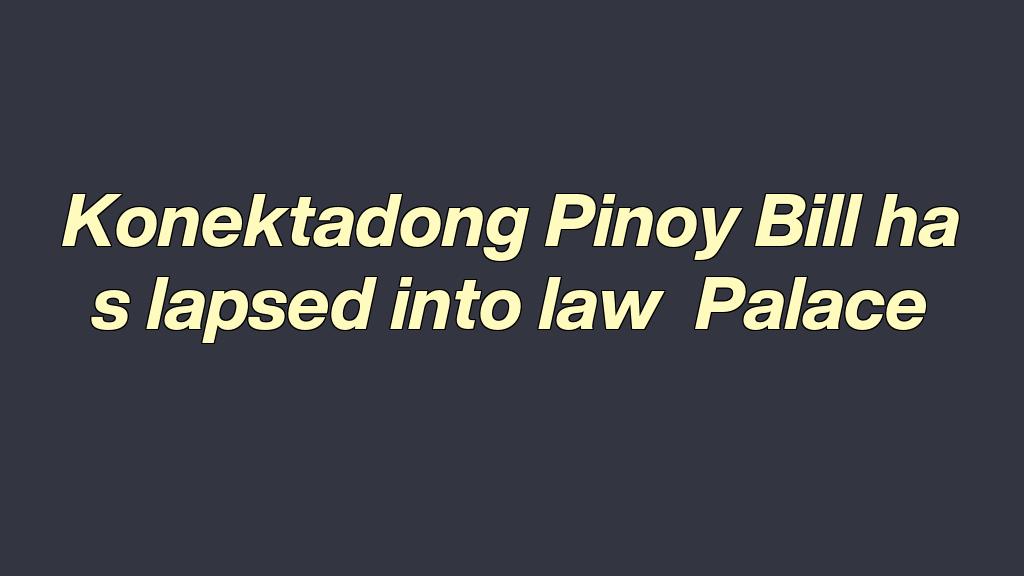The controversial Konektadong Pinoy Bill has lapsed into law, Malacañang confirmed on Sunday., This news data comes from:http://vh.705-888.com

The confirmation was made by Presidential Communications Office (PCO) Undersecretary and Palace Press Officer Claire Castro.
Concerns regarding the legislation previously arose with telecommunications firms and other stakeholders voicing opposition because of the potential regulatory and cybersecurity risks it may bring.
Konektadong Pinoy Bill has lapsed into law — Palace
Among those who aired their grievances were the Philippine Chamber of Telecommunications Operators and the Philippine Association of Private Telecommunications Companies and Philippine Chamber of Telecommunications Operators.
Telco giant PLDT also sounded the alarm over cybersecurity issues because of the measure’s open access mandate.
The Department of Information and Communications Technology, however, maintained that the Konektadong Pinoy law would bring more benefits as it addresses roadblocks “by streamlining the licensing process, promoting infrastructure sharing, and allowing new and smaller players to invest in data transmission infrastructure without requiring a legislative franchise, an outdated requirement unique to the Philippines.” Marcos last January certified the bill as urgent to “facilitate the development of robust and resilient communications infrastructure” in the country.
- Bonoan freezes DPWH travel passes
- House party leaders want to return proposed 2026 budget to Executive
- FBI raids home of Trump critic, former adviser
- Govt eyes charges vs Discayas over 'unfinished' PH Film Heritage Building
- Sarah Discaya grilled by Senate over alleged DPWH links
- Philippines to work more closely with US amid regional challenges
- Mob burns Nigerian woman to death over Islam blasphemy claim — police
- Marcos urged to raise WPS resolution at UN
- House tackles P881B public works budget amid flood control anomalies
- India to cut taxes on hundreds of consumer goods to boost local demand following steep US tariffs